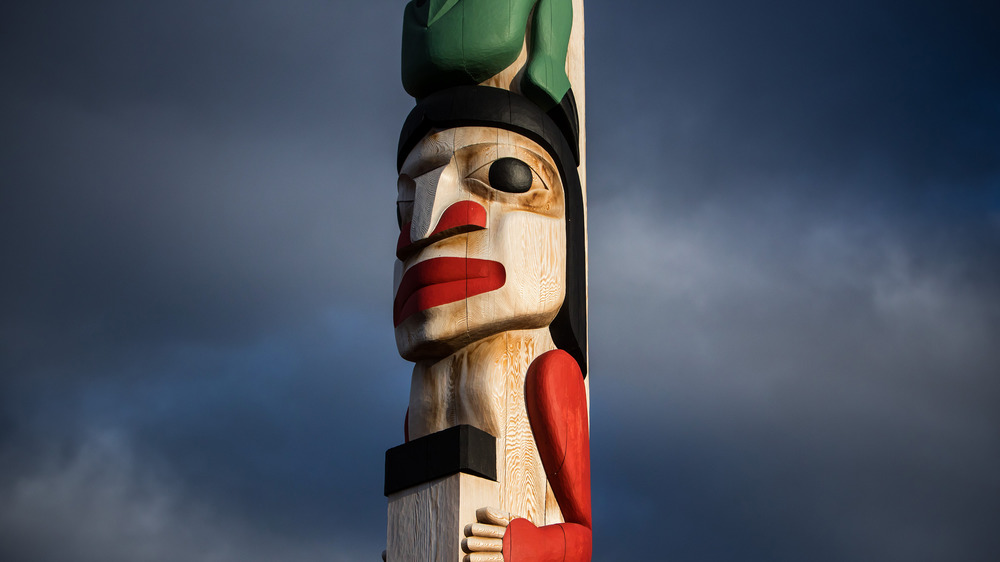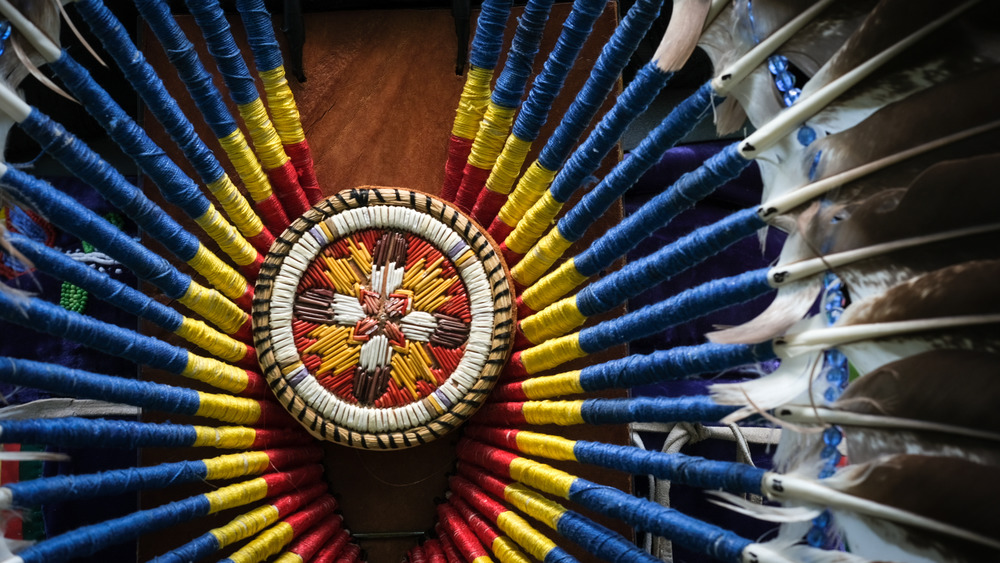Why Canada Uses The Term 'First Nations'
The use of the term "First Nations" to describe people who are the "original inhabitants of the land that is now Canada, and were the first to encounter sustained European contact, settlement and trade," per The Canadian Encyclopedia, came into common parlance in the 1980s. In 1980, a large group of chiefs met in Ottawa and used the term for the first time in writing the Declaration of the First Nations. In 1982, the National Indian Brotherhood, which since the late 1960s had served as the voice of indigenous peoples of Canada within Canadian government and public policy, according to Britannica, changed their name to the Assembly of First Nations, and the term entered the common parlance to replace the term "Indian," similar to the way in which the term "Native American" rose to prominence over the term "Indian" in the United States. The Canadian Encyclopedia notes that the term "elevates First Nations to the status of 'first among equals' alongside the English and French as founding nations of Canada" as well as the "ongoing quest for self-determination and self-government."
Indigenous Corporate Training reports that historically, "the First Peoples of this land now known as Canada formerly had unique communities with unique names" and there was no need to label First Peoples with a collective term before the onset of European colonization. The site also discussed the term "Aboriginal People," which was used in the Constitution Act of 1982, which included First Nations people as well as Inuit and Metis peoples.
All-encompassing terms are useful but can be incomplete
Indigenous Corporate Training goes on to note that "Indigenous Peoples" is another collective term that is comparable to, and has grown in popularity over, "Aboriginal Peoples" and is preferred by some over the term "First Nation." Communities in Ontario have specifically expressed a preference for the term "Indigenous Peoples."
The First Nations & Indigenous Studies department at the University of British Columbia reports that while the term "First Nations" generally replaced "Indian" in Canadian culture, it is not a legal term, unlike "Indian," which is a legal Canadian identity ascribed to a person registered under the Indian Act, a law passed in 1876. Using the term "Indian" outside of this specific legal context is considered outdated. Furthermore, unlike "Indigenous Peoples," the term "First Nations" doesn't encompass Inuit people, who live in the far north of Canada, or Metis people, which is "a collective of cultures and ethnic identities that resulted from unions between Aboriginal and European people in what is now Canada."
National Public Relations points out that there is no one correct answer when it comes to describing the "over 50 different Indigenous Nations in Canada, living in over 600 communities," and that while observing and using all-encompassing terms can be helpful, "it's important to remember that Indigenous Nations, communities, organizations, and people are distinct, and to remain sensitive to the respective name, spelling, and identity of each."

